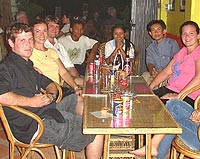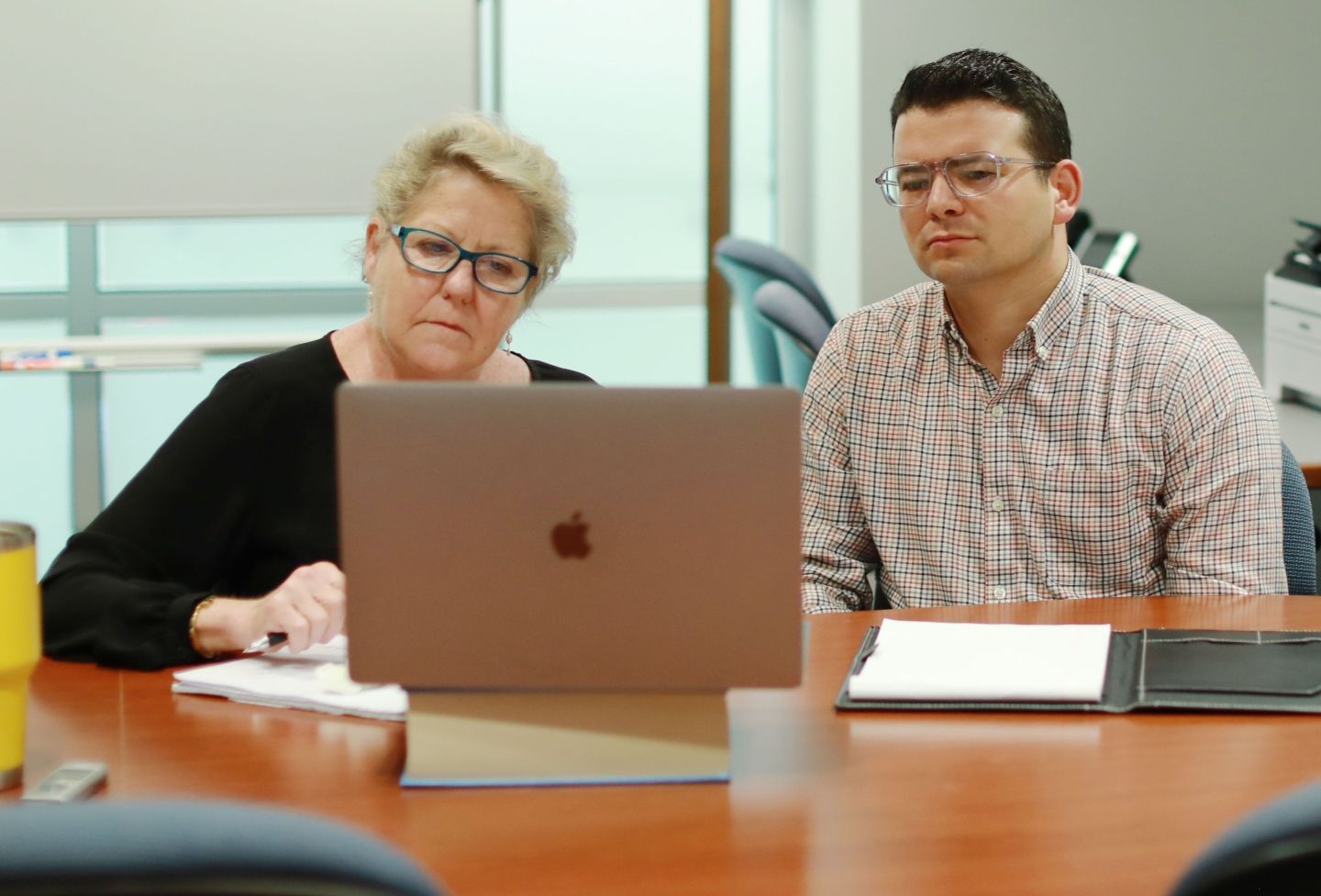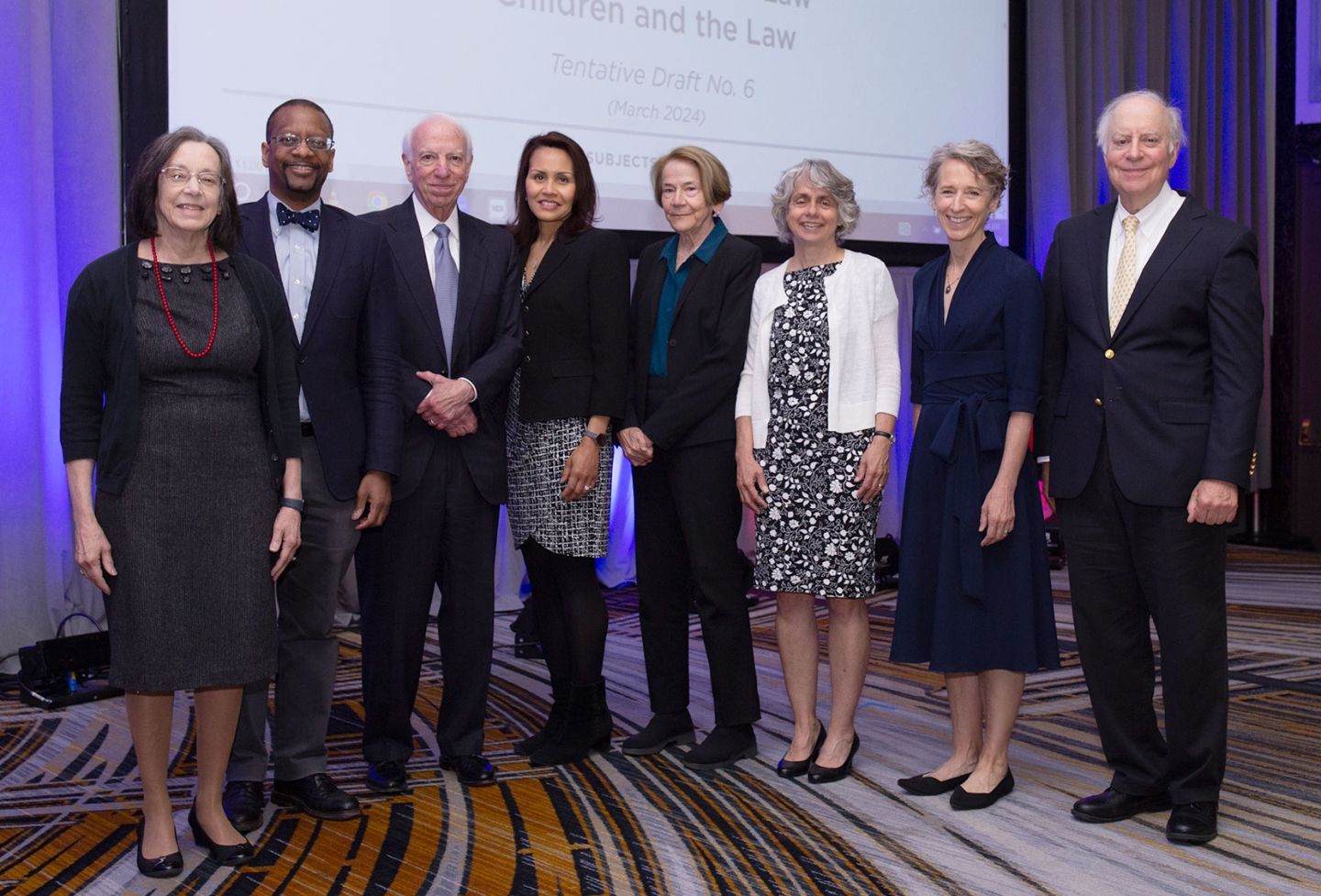Student's Summer Job Targeted Predatory Sex Tourists

Cristi Head is trying to change the odds for sex tourists who go overseas to impoverished places to sexually abuse children, confident that the chance they will be caught or punished is near nil.
Head, a second-year law student, spent her summer working for the Cambodian Women's Crisis Center (CWCC), in their Siem Reap office in northwest Cambodia.
"CWCC is so fantastic, so effective. I could see right away the difference they are making. It's exciting to me to work on something that I know will improve people's lives. I really enjoyed working in direct services," said Head, a Williams College graduate who majored in art history and political science. She's married to fellow second-year James Head, who spent his first-year summer working for two law firms in the United States.

"CWCC is victim-oriented," explained Head. "They are mainly concerned with domestic violence, rape, and sex trafficking. They want to punish criminals and deter them, but really they are coming at it from the victim's perspective. Among other services, CWCC provides legal assistance for abused women and runs a shelter where they can get counseling and learn job skills like sewing and weaving, " Head said. "Some of the victims they help are very young-the youngest I know of was an infant-but most are between the ages of 14 and 40."
Head's project focused on prosecuting tourists who come to Cambodia to sexually abuse children.
"CWCC needed help with a specific project. They had never distinguished before between foreign and Cambodian child sex offenders. They wanted me to write a report that answered three questions. First, what do these cases look like (how old are the perpetrators, what countries are they from, what kind of children do they target, etc.)? Second, how have these cases proceeded through the Cambodian legal system and how can CWCC help get the perpetrators successfully prosecuted (the fact is, many perpetrators bribe their way out at various stages)? And third, what are the laws in foreign perpetrators' home countries that can be used to prosecute them there? The U.S. has such laws." Head said she is researching applicable laws in about 20 "sending" countries, such as Japan, Sweden, and the United States, and expects to finish the report in the next few months. "CWCC needs a document they can use to look up laws from other countries and get the text of the laws, the procedures and relevant contact names.




"Pedophile sex tourism is all underground, so it's hard to get statistics on. The Internet is making it worse. Pictures allow people to objectify victims more easily. Pedophiles are using the Internet to network, too, and give each other advice about how to succeed. They know how to target the most vulnerable girls and boys." In another twist, she said some victims have been brought to CWCC by sex tourists who were appalled by the conditions they found their intended victims living in.
"For a girl to be the victim of a sex crime in Cambodia is devastating for her future," Head explained. "It is veryhard for a girl to get married if she is not a virgin. She may also be ostracized by her community, even if the community members see her as a victim and don't blame her for what happened."
Head said she felt great respect for Canadian police whose relentless investigation of a Canadian who videotaped himself torturing young girls finally led to the room in Cambodia where the abuse had been filmed.
Cambodian law does not target prostitutes personally. "In Cambodia it's not illegal to be a prostitute, but it is illegal to be a pimp or own a brothel," explained Head. "But if you walked up to someone on the street and offered her money to have sex with you, that isn't illegal.
"There's a huge amount of prostitution in Cambodia, and the prostitutes tend to be very young. Men want young girls because of fear of sexually transmitted diseases. Younger girls are also easier to control. There are also true pedophiles who simply prefer to have sex with children."
Fighting the problem is hard because Cambodia has weak legal institutions. "Cambodia's government is corrupt and disorganized," said Head. "It's easy to bribe your way out of an arrest or out of jail. Government officials also own some of the brothels."
"Many cases are brought forward by nongovernmental organizations [NGOs]," she said. She found out about CWCC, which was founded and run by Cambodians, through Human Rights Program Director Deena Hurwitz. The Human Rights Program gave her a $2,000 grant, enough to cover Head's travel and living expenses. The Human Rights Program also supported three other students involved in overseas summer projects: Thomas Goodman '06 at the Center for Justice in International Law (CEJIL) in Costa Rica; Olivia Wang '06 with the International Criminal Tribunal for Former Yugoslavia, The Hague; and Sue Chen '06 with Human Rights Watch in London. Second-year Lee Gordon was also in Cambodia for the summer working on freedom of assembly issues for the Cambodian Defender's Project, the largest legal aid and human rights law group in Cambodia.
Founded in 1819, the University of Virginia School of Law is the second-oldest continuously operating law school in the nation. Consistently ranked among the top law schools, Virginia is a world-renowned training ground for distinguished lawyers and public servants, instilling in them a commitment to leadership, integrity and community service.


